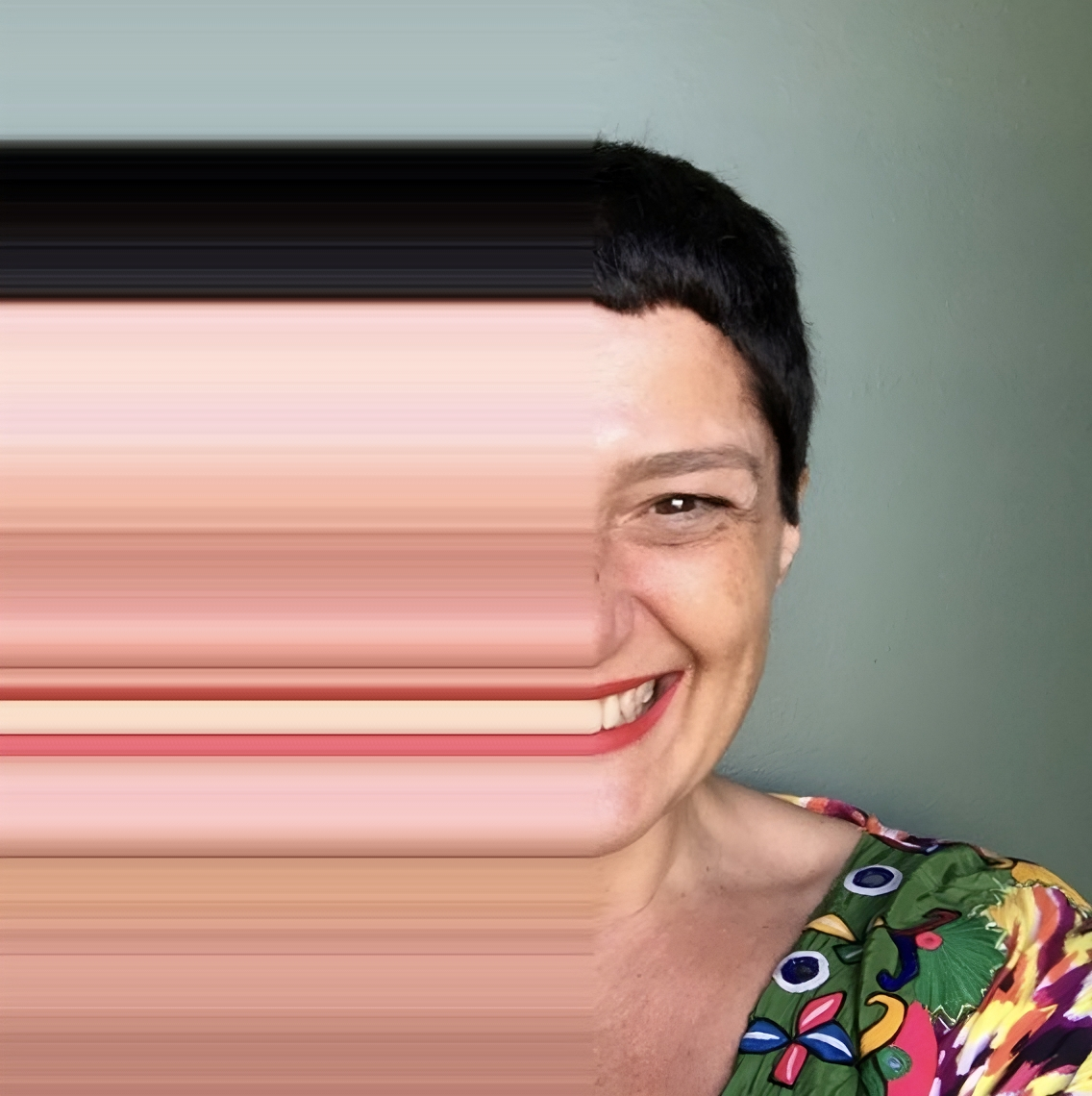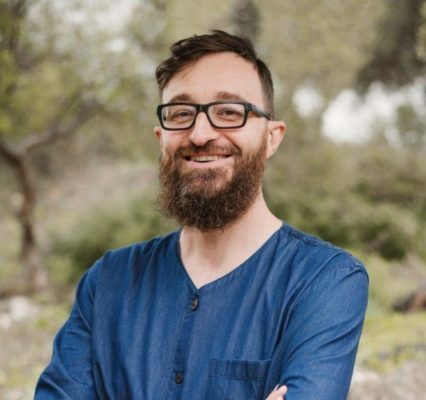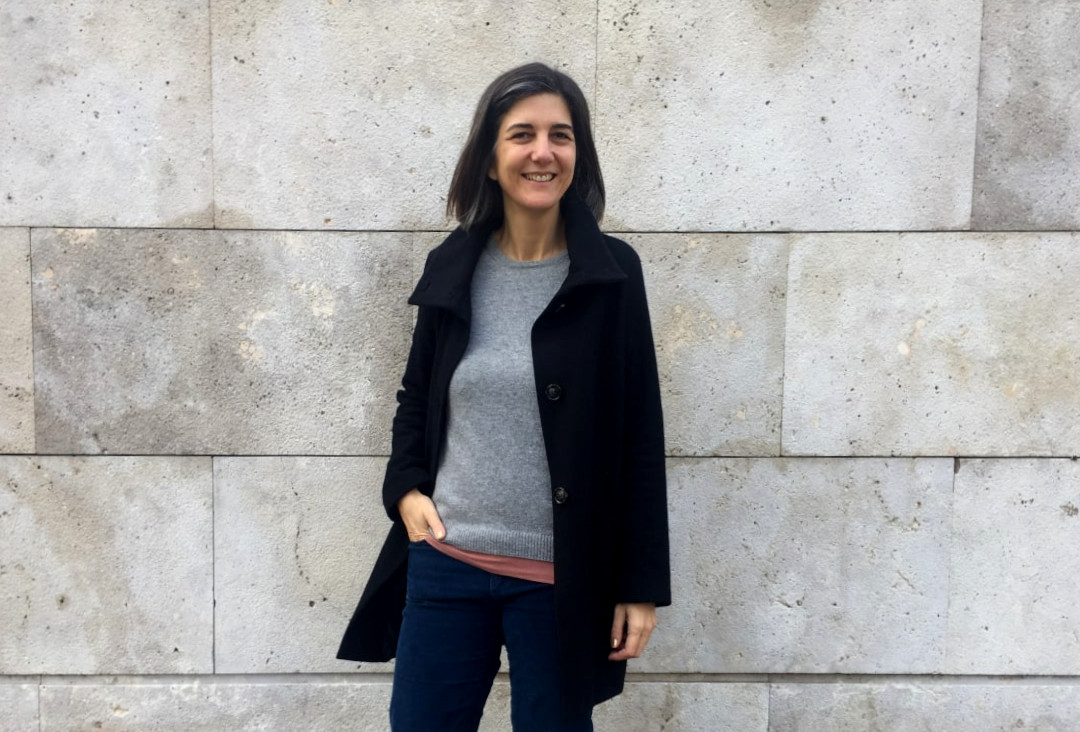Interviews
Patricia Luján Feminist and transformative communication, marketing applied to activism and advocacy with the tools of advertising

If we say “Do you like to drive?” or “Welcome to the independent republic of your home”, don’t you immediately get the reference? These memorable advertising campaigns were co-designed by communicator Patricia Luján. Today Patricia is Director of Con Perspectiva de Género and co-founder of School Of Feminism. Xesca Sastre and Olivier Schulbaum, from Platoniq, talked to her about feminist and transformative communication, marketing applied to activism and advocacy with the tools of advertising.
Why is a gender perspective in the use of language important?
Because language should be used in a way that represents everyone. We need a communication that overcomes the predominance of the masculine and that integrates all people living in society. Communication is fundamental because we need to reach as many people as possible. Therefore, if we include women and non-binary people, we will reach many more people.
Is there an interest from brands in communicating with a gender perspective? Why do you think that is?
There are some brands that, when you raise the issue of inclusivity, or simply ask them to represent diverse people and other sexual orientations, they don’t want to “get involved” either. Or, rather, they think about the people who might be offended.
However, I do believe that more and more brands are aware that they have to change the discourse and take a stand, because more and more people consider that brands have to bring value and not rubbish messages to society. So, even if it is from a business point of view (because at the end of the day what they want is to sell), they know that people are not stupid and they are asking for a different way of talking and to represent other types of people -that is to say, everybody-.
Let’s talk about the beginnings of School of Feminism. What was the intention behind the project?
It started in 2018 as a result of the case of “La Manada”, which affected me deeply. I went to my daughter’s school and I said to myself: I work in communication, making advertisements, creating concepts and ideas that are going to reach many people. I believe that I have the capacity to launch other types of messages that reach the whole of society in the same way, in an “advertising” way.
School of Feminism doesn't communicate very complicated ideas, or if it does, it does so in a very chewy way so that they are easy to understand. It is an advertising vision of dissemination
And so School of Feminism was born, an informative and collaborative platform from which slogans for equality are launched through communication, creativity and education. And by using all these simple marketing and advertising tools, you can reach a large number of people and launch powerful messages that are understandable**. School doesn’t communicate very complicated ideas, or if it does, it does so in a very chewy way so that they are easy to understand. It’s an advertising vision of disclosure.
What three campaigns would you highlight from School of Feminism?
The first campaign was “Thank a feminist” originally proposed for 8M at my daughter’s school, but I was told that families were not yet ready for this kind of message (wry laughter). So I posted these posters on social media and it was an incredible boom. The first post had a reach of about 7 million. What I liked the most is that I started to receive messages from people from other parts of the world asking if I could translate the posters into the language of their country, all in the week of 8M. Now they are already in 20 languages thanks to people who voluntarily gave me the translation to adapt the posters.
Another one I am very proud of is “The present is feminist”, for Barcelona City Council. They asked me for the conceptual and positioning part for 25N. I still love to see this concept in the windows of some of the City Council centres.
“Educate children in feminism” is another of the campaigns I like the most. Educating children in feminism, equality and non-violence. We will not be able to achieve equality if we do not propose a much more diverse, respectful, fair and egalitarian education from birth. We have to educate from schools and also from families. And we must also take into account all the cultural products we are surrounded by, which transmit messages from the 12th century. That is what needs to be changed.
On the other hand, there are studies that say that boys and girls learn at a very early age - at 5 or 6 years old - all the cultural stereotypes, which are transmitted by adults, by the media and by everything around them. So girls start to think from a very early age that they are less valid and less intelligent than boys. So, it’s all very well to empower, to break that gap in self-esteem, but we also have to get much deeper messages of respect into children.
### Speaking of this campaign, we ask you: Is the present really feminist? On your page Con Perspectiva de Género, you say that “In 2030 Generation Z will see the gender divide as old-fashioned”. But at the same time, we live with news that tells us that teenagers and younger men are the closest to the postulates of the extreme right and that there is a reactionary wave encouraged by youtubers and streamers who champion misogyny. Is there really a rising trend of machismo among young people?
There is also a study by Fad that says that many young people even deny that gender violence exists. Evidently it is a reality that exists. Apart from the fact that we need to do an exhaustive and very deep work in education and in the whole system. It is not just a question of changing the content of the books so that women appear in them (which must be done, of course) but, beyond making them visible, it is also necessary to change the education system itself, to change the way it is structured. I arrive at class and I find myself on a platform with 90 people listening motionless downstairs and this makes me very anxious. It’s like “OK, I’ll get off the stage. And I mobilise the class”. But just from the formal structure, you can see that it is a patriarchal system. Education, the way knowledge is shared and received, is already patriarchal**. It is time to break with the “because it has been that way it has to stay that way”.
We must also recognise that young people in general already come with things ingrained in them that I, at 52 years old, have only recently learnt. On the other hand, I think that young people are a bit lost, to be honest. With all the irruption of feminism, girls are more empowered, but at the same time boys, or young people, are confused and don’t know where to find themselves.
Talking about activism, you apply things that come from your professional culture (marketing) and that’s why they work, that’s why they are more attractive than any complex message from activism. How could your messages (for example, the ‘Thank a feminist’ posters) reach self-organised spaces outside of 2D and help to generate conversation?
More and more activists are using the rules of marketing. In my strategic planning classes at UAB we were talking about the actions of climate activists in museums (those who threw paint on pieces in different European museums). If activists and NGOs applied the rules of marketing, their messages would get through more effectively. When you create simple, empathetic messages, they immediately reach people. Whether through a doormat, a poster or any advertising gadget such as a T-shirt. Actions like those of climate activists create an impact so that the press talk about them… they are advertising campaigns. I think it’s super-brilliant.
If activists and NGOs applied the rules of marketing, their messages would get through more effectively
We have to go beyond the people who are already convinced and reach out to those who have not yet received the message. Open eyes so that things can change. Here we have the example of Greta Thumberg. When she was a child, she sat down in front of Parliament and said that she would not get up from there with a pamphlet explaining why, and from there things started to change and she became very big. From there Fridays for Future was created. A small gesture by a little girl who said “I don’t go to school because there is no future. Listen to me “ triggered a whole movement. It’s hard, but thanks to a small action, it has had an impact on a lot of people.
It is said that to win the political battle, as an indispensable condition for social transformation, you have to win the cultural battle. Do you think feminism is already a hegemonic culture? If it isn’t yet, do you think that viral marketing campaigns are effective?
You have to be careful because not everything goes. **Unfortunately, feminism is not yet mainstream. In 2019 the world was full of transformative energy and there were a lot of movements everywhere; Hong Kong, Latin America, here… everywhere in different fields. I was already seeing the turn, I could almost see the revolution coming. I could see another world coming. The streets were overflowing and not only with activists, but many of the 99% who don’t consider themselves activists. It is very difficult to mobilise people and they were on the streets. And in 2020 they locked us up. Everything was going to explode and then the pandemic came and deflated us. It was an imbalance and since then, other kinds of slogans or headlines have appeared in the press like “if you can’t even afford to eat, don’t talk about equality or climate change”.
As a communicator, how do you think we can mobilise people who are not very active or interested in being heard? How can we combat political disaffection and empower citizens to change power structures?
I think that every little bit of activism that can be done is important. Both in terms of dissemination and in terms of more mainstream advertising messages.
But I also believe in the power of legislation. On issues as crucial as gender-based violence or climate action, we should legislate. “State that doesn’t comply with this, state that is punished”. Either you comply with the mandates of equality or social justice and human rights, or you are out of all groups and penalised. Acting small is fine, but changes are very small and very slow. Now I am beginning to wonder whether we really need to take a much more global and profound approach to the structures themselves.
On such crucial issues as gender-based violence or climate action, we need to legislate. State that does not comply with this, State that is punished
There are many people doing things from deep inside. As associations, as platforms, as assemblies… it exists. In fact everything already exists. It’s a matter of finding the most effective way of transmitting the messages so that more people join, because the reality is that in this “making visible the need to change the legislation” what is needed is to unite the maximum number of people beyond activism. And to do this we need to use a different language and a different model to reach more people.
In the USA, years ago, an initiative called Truth was born against the big tobacco companies. These people launched very powerful campaigns, as any big brand could do with a large investment. They told the evils of the whole tobacco industry. They used the tools of marketing and put prime time TV ads that reached a lot of people with a message that everyone could understand and that they would even want as a slogan on their T-shirt. For me it is a reference in the world of activism; to get a large group of people to make a change. That’s how changes in tobacco legislation were achieved. I think that’s a wonderful mix. This, I must say, Platoniq has always done very well.





